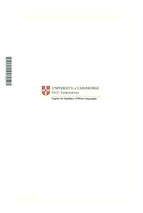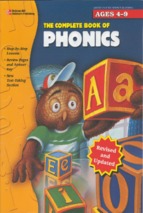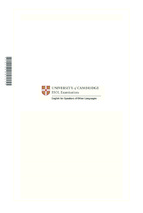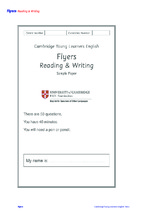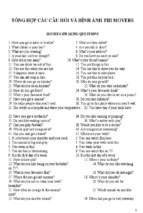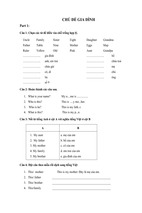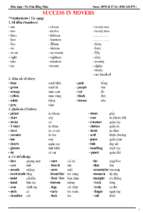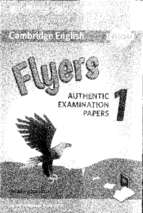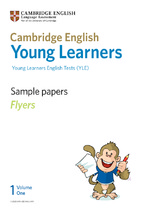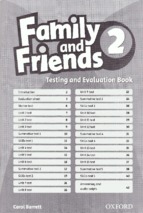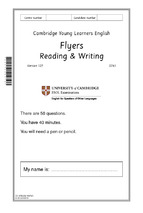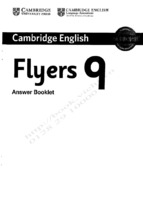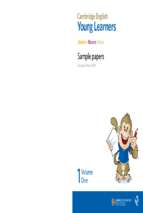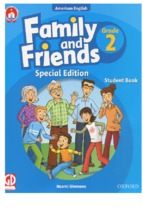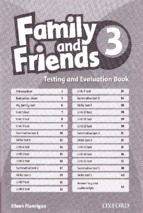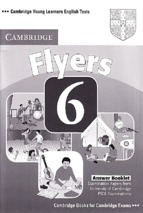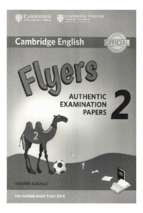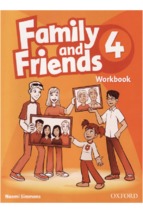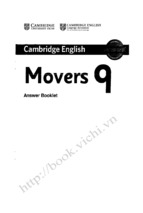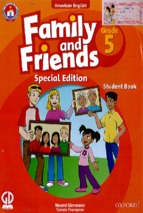•
Comprehension
Louis Fidge
•
e---.
Comprehension
Louis Fidge
-
," ' . -
.~ . '
.
MACMILLAN FOUNDATION SK ILLS
""
. 1 · ...
;
. 0' ·
Contents
Page
Unit 1
Thinking of others
6
Unit 2
The water cycle
8
Unit 3
The 'lost' treasure
10
Unit 4
On top of Africa
12
Unit 5
Theseus and the Minotaur
14
Unit 6
Pollution
16
Unit 7
Water pollution
18
Unit 8
How green are you?
21
Unit 9
How music came to the world
24
Unit 10
William Shakespeare
27
Unit 11
Making the right decision
30
Unit 12
The world with its countries
33
Unit 13
Endangered animals
35
Unit 14
How did I get here?
38
Unit 15
Hot deserts
41
Unit 16
Wha.le-hunting
44
Unit 17
In charge
47
Unit 18
The history of New York
50
Unit 19
The poachers
53
Unit 20
The Olympic Games
57
,
Glossary
61
1
Skills, Scope and Sequence
Unit 1
Text Type
Text Level
Sentence Level
Word Level
Thinking of others
Story with a moral
Setting and characterisation
Abstract nouns
Common word endings ar and or
Unit 2
Text Type
Text Level
Sentence Level
Word Level
The water cycle
Information in form of flow diagram
Features of diagram; Literal comprehension
Prepositions
Word endin g our
Unit 3
Text Type
Text Level
Sentence Level
Word Level
The 'lost' treasure
Information te xt (report)
Que stions (literal/inferential/evaluative)
Verb tenses - present/past/future
Common word endings sur e and ture
Unit 4
Text Type
Text Level
Sentence Level
Wo rd Level
On top of Africa
Biographical account
Questions (lite ral/i nferential/evaIuative)
Subject/verb/ object
Spelling strategies for difficult words
Unit 5
Text Type
Text Level
Sentence Level
Word Level
Theseus and the Minotuar
Greek legend
Questions (Iiteral/i nferential/ appreciative/ evalua tive)
Compound sentences
Synonyms
Unit 6
Text Type
Text Level
Sentence Level
• Word Level
Pollution
Poem with a moral in form of a conversat ion
Features of poem; Questions
Positive and negative sentences
Commo n word ending tion
Unit 7
Text Type
Text Level
Sentence Level
Word Level
Water pollution
Non -fiction information text (report)
Questions (literal/inferential)
Pronouns
Common word endin gs ary , ery and ory
Unit 8
Text Type
Text Level
Sentence Level
Word Level
How green are you?
Information text (report/checklist)
Questions (literal/inferential)
Imperative verbs in commands
Common word endings sio n and ssion
Unit 9
Text Type
Text Level
Sentence Level
Word Level
How music came to the world
Traditional story (from South America)
Que stions (literal/inferential/appreciative)
Conjunctions
Study way sound of vowels following w is be affected
Unit 10
Text Type
Text Level
Sentence Level
Word Level
William Shakespeare
Autobiography
Cloze procedure
Composing endings to compound sentences
Study of words in which i sounds like ee
2
Unit 11
Text Type
Text Level
Sentence Level
Word Level
Making the right decision
Play based on English legend
Sequencing
Adjectives; Abstract nouns
Homophones
Unit 12
Text Type
Text Level
Sentence Level
Word Level
The world with its countries
Poem with a moral message
Features of the poem ; Questions
Possessive pronouns
Word s with the same letter pattern but different pronunciation
Unit 13
Text Type
Text Level
Sentence Level
Word Level
Endangered animals
Presentation of information in chart-form
Literal comprehension ; Features of text
Sentences and phrases
Prefixes ex and mis
Unit 14
Text Type
Text Level
Sentence Level
Word Level
How did I get here?
Mystery story
Questions (literal/inferential)
Speech marks (direct speech)
Common word endings ance and
Unit 15
Text Type
Text Level
Sentence Level
Word Level "
Hot deserts
Information text (non-chronolgical report)
Features of text; Questions
Singular and plurals
Root words
Unit 16
Text Type
Text Level
Sentence Level
Word Level
Whale-hunting
Information text/poem with a moral issue
Questio ns (Iiteral/i nferential/ appreciative)
Using awareness of grammar to complete sentences
Common word endin g ise
Unit 17
Text Type
Text Level
Sentence Level
Word Level
In charge
Adventure
Literal , inferential and evaluative comprehension
Punctuation
Spelling rule - i before e
Unit 18
Text Type
Text Level
Sentence Level
Word Level
The history of New York
Chronological report
Questions (literal/inferential)
Types of sentences
Proverbs
Unit 19
Text Type
Text Level
Sentence Level
Word Level
The poachers
Story raising moral issue
Literal , inferential and evaluative comprehen sion
Identifying verbs and adverbs
Common word endings ous and ious
Unit 20
Text Type
Text Level
Sentence Level
Word Level
The Olympic Games
Information text (report)
Questions (true or false)
Parts of speech (general)
Letter patterns ci and ti making a
3
ence
sh sound
Teacher's Notes
Introduction to the series
The texts
Each book in the series introduces pupils to a wide range of culturally appropriate text
types, including fiction, poetry and non-fiction. The books are carefully graded according
to readability and are incremental in difficulty. The books provide a valuable complement
to any other resources or series currently being used. The fact that each unit is structured
in the same way makes the books access ible and easy to use.
The related activities
The related activities support the development of essential reading skills, at Text Level,
encouraging pupils to read at different levels including literal, inferential and evaluative
comprehension skills. The stimulus passages are also used to help pupils develop skills at
Sentence Level (grammar and punctuation) and Word Level (spelling and vocabulary).
The Skills Scope and Sequence Chart
The Skills, Scope and Sequence Chart (on pages 2-3) provides an immediate overview of
text types included and skills being developed at Text, Sentence and Word Level. This
chart is very helpful for plann ing purposes.
Using the books
To gain maximum benefit from the books, it is suggested that they are used
systematically, working through each unit one at a time, in the given order. However, the
books may also be used flexibly, selecting units as desired to complement other work
being done in class.
Tackling the texts
The stimulus texts may be tackled in a variety of ways. They could be used for shared
reading . This could take the form of the teacher reading the whole text to the class or
inviting different pupils to contribute as appropriate. Certain texts e.g. poems, provide an
ideal opportunity for whole class participation . Alternatively the pupils could be asked to
read the text silently or read it aloud in pairs or in groups. Whatever approach is used, to
make the most of each text it should be discussed to ensure pupils have a good grasp of
the literal meaning of the text and any vocabulary they may not have met before. The
related Text Level activities may initially be done as a class verbally to help pupils reflect
on the texts.
Tackling the related activities
The related activities at Text, Sentence and Word Level may be used systematically or
selectively as desired . However they are used, it is suggested that prior to working any
activity there is some discussion with the pupils to ensure they understand what is
required of them.
4
Teaching Features of the books
Units of work
The re are 20 unit s of w ork (of either two , th ree or four pages in length). Each unit is
structured in the same way i.e . a stimulus te xt, followed by three different levels of
activiti es (Text, Sentence and Word Level) .
Text Level act iv ities
(a range of di ffe rent ia ted
comprehension tasks)
Unit numb er and title
Sentence Level activi ties
(Grammar or
p unctu ation tasks)
f u r teeu,
Think ing of others
, Wh at is the 5l"ttil"g o f the story (t hc place where I .!.ppenedP
1 Yo.-'ho do Ali and his friends meet1
J wtat probl ems does the stra nger h.a.vc1
" Soon after Ali met th e strang er. somet hing b
holppent'd Wh at w a ~ it?
!i W hy drd each person in the group only drin .1 cuptu ! of wat er d d"y?
What kind thmg drd Ahd c tu thl.' st,.a.ngcr
Th i nk at ulm~ Woi)'t. yo u M.." . h" lpc-d ot hen kldlo Y.
n l \' (~ ....,f )
on ce a ma n Iollktl .\ 11 wh o w.1\ ll J I'd Jm" ho me with
111\
Ir l,' l l\1
Ihr ll ll ~h .. IWI- dr y "' /l d . It \\'.., I h r !J..
:Jllt>
tlon@:
AdJ' l lIY.
w"" d '
Text for reading and discussio n
It , ~ lT'O' e _ r> .. l
lo. 1">OU/l
A ~ , c. ""
.....
Com p. I.II IYfO I IUPf' II. llv • • d~I' '''''~
r:- t .-t"'P'r
Word Level activ i ties
(spe lling and vocabulary tasks)
Aa.,.rb
I.~
-,.ll" _
'.n ~ ltl
,l.. .
..... M .... rb II
ftlOf'l'
• r OltI>.r UOO'I I, .,.tIp """",,
~~ ' !1! ~"
""...JI .. I:,
u no
"'~ rk
"'lp( t('lf,,,,"p
rftl,n ( ~
".II'"Jr,...
C' ~
~ OO' . u l"'lfll<' ,
I
~' ~'"Ii~
A " 1MI'I"" H M l i" c ul.ll (j09h_" ~ ""tIt1h If<.l.f
.-.0 lllt ....... !tt.t ... ... . " · . ... . N
01 or!'!t't1..,.rtidl ocu.r 0 ' 1
1t"000000I--.1l'W'rC lor • •• mv ". I
An ab1iI' " ( 1 "0 <1'\'" IhI"
A p;I. ,,« •• ph ( 4""""'(>'
hflltl.p/'t
Homophon.
....'
5
by
11"",,_ ....... l lr"l OloiI
dot'\'t _ ilIIO_ 1
Len.. ~II.m
M . . .. ..... I l'Q !~ l-ocl! . '
A( ol l"" " v .. no " n " loy .......... oI.
Oppo .. "
toQfI
1I'IIf1! '1'OP'"
-.rl'·""'·f1tor' ........·".n;wt.ll.thII'
ObJttl'I . I ~ ., 1
..
ffloO"f~
....
.JI!~
Pot m
" pM m " . pooeno ol...
""'I... ~
..., 1'I,," " '"'fterlm~
""rr..f .,.,..
POJIIlY'
-· " I;l ~
,.., 1'" '
P01O.I'
.. J ~ "
__
II I"" ' .
. ....
'I""
O"I'I.. l . p "I . pol. l "'.
l ~"
I"t.,rIk.o l'
- .Io, .
!'
.f\d "- ''' ' l " I~
~ fl lrrf
,.... pl lKIlC.ll e
(_ ,,~"'! . ,~t
yth. t ",,''''"l 1'I
Thinking of others
Think of some ways you have helped others today.
There was once a man called Ali who was travelling home with his friends
through a hot, dry land. It was the hottest month of the summer. On their
way they met a poor stranger, dressed in rags. He was hungry and thirsty
and had no money. He asked if he could join them. The travellers felt sorry
for him. They welcomed him, gave him a drink and continued their
journey through the desert.
It was not long before they lost their way. The sun beat down even
harder. The ground became more sandy and dusty. There were no rivers or
springs in sight. There were no water wells nearby. Soon their water began
to run out. The situation was bad. They decided that the only way to
survive was to ration the water that was left between them. Each day, each
person drank just one small cupful when they stopped for the night.
One evening, when it was Ali's turn to drink, he noticed the stranger
staring at him . He immediately turned to the water-carrier and said to him,
'Give my water to my brother, the stranger.' The stranger drank Ali's share
of the water, for he was very thirsty. Ali had nothing to drink.
The next day the same thing happened again. The stranger drank the
water and Ali had none. Day after day it happened and each day Ali gave
toe stranger his water. Each day Ali became weaker and weaker.
One morning, the stranger called Ali to tell him it was time to get up and
get on his camel. 'Get up, Ali. We are not far from water now. Soon you
will be able to drink as much water as you like,' he said. Ali's friends looked
at the stranger curiously. 'How do you
know we are not far from water?' they
asked. The stranger smiled. He picked
Ali up and put him on a camel.
'Follow me,' he told Ali's friends.
They walked for a few kilometres.
Then they stopped in astonishment.
The stranger had repaid Ali's
kindness. He had led them to an
oasis!
6
EXT LEVEL
1
2
3
4
5
6
7
8
9
10
What is the setting of the story (the place where it happened)?
Who do Ali and his "friends meet?
What problems does the stranger have?
Soon after Ali met the stranger. something bad happened. What was it?
Why did each person in the group only drink a cupful of water a day?
What kind thing did Ali do to the stranger?
Why do you think Ali called the stranger 'his brother'?
Why did Ali get weaker and weaker?
How did the stranger repay Ali's kindness?
What do you think we can learn from the story?
SE r ENCE LEVEL
Complete each sentence with an abstract noun from the box.
beauty courage anger
sound danger speed
1
2
3
4
5
6
7
8
9
10
strength
life
fear
poverty
l!£=-e
Death is the opposite of
I was amazed by the
of the princess.
The giant had the
of ten men.
The shoppers were terrified and looked at the robber with
_
The
of the car was amazing.
There is
. in climbing mountains.
The cook was filled with
when she saw the mess in her kitchen.
The beggar lived in
_
John showed great
in fighting the lion.
The
came to our ears.
ORO LEVEL
Write these words in two groups according "to the word endings (ar or or).
beggar radar doctor actor grammar cellar calculator editor
survivor burglar sugar conductor vinegar inspector scholar sailor
7
The water cycle
The flow diagram below shows you where water comes from .
Why do you think it is called a cycle? Does it have a beginning?
Does it have an end?
Water is warmed by the sun. It turns into water
vapour and rises.
The water vapour turns into small drops of
water. These drops of water form clouds.
As the clouds pass over high mountains and
hills the drops of water fall to the ground as
rain or snow.
Streams and rivers carry the water down from
the mountains and back towards the sea.
..-.
I
....... . ....
8
.... ~
~
..".
..
EXT LEVEL
What does the water in the sea turn into when it is heated by the sun?
What does water vapour become in the sky?
When the clouds pass over hills or mountains, what do they drop?
What carries the water back to the sea?
What is the purpose of the arrows in the diagram?
Is there a beginning or an ending to the water cycle? Explain your answer.
1
2
3
4
5
6
SE TENCE t EVEL
Choose the best preposition to complete each sentence.
The water vapour turns Ln.to small drops of water. (across / into)
I was accompanied
my parents. (with / by)
We decorated the school
flags. (with / by)
At the concert I took part
a play. (on / in)
Please reply
my invitation. (to / at)
I was inspired
my teacher. (for / by)
I kicked the ball
the wall. (between / against)
At the party I gave my present
Tom. (to / for)
My friend reminded me
my promise. (for / of)
10 Sam was amazed
the man's strength. (by / to)
1
2
3
4
5
6
7
8
9
ORD LEVEL
1 Make these ou r words .
a vap _ _ _
' e harb Q U.I
i splend _ _ _
b od
f glam
j neighb
c fav
g col
_
_
2 Write:
a
b
c
d
e
the shortest word you made
5 six-letter our words
2 seven-letter our words
2 nine-letter our words
all the words in alphabetical order
9
_
d vig
h arm
_
The 'lost' treasure
Do you ever dream of becoming rich? What would you do if you
had lots of money?
Five hundred years ago explorers discovered
America. They told stories about treasure
hidden in the mountains and forests of South
America . One of the stories was about a city
called El Dorado ('the city of gold') which was
somewhere in the mountains of Colombia. The
story said that the local people painted their
king with gold dust once a year. The king then
washed off all the gold in a lake. Afterwards his
people threw gold and precious stones into the
lake. When people in Europe heard this story,
many of them began to talk about finding this lake, draining all its water
and taking away the gold and jewels that had sunk to the bottom.
Most of the west coast of South America was ruled by the Incas, who
built magnificent temples and palaces and filled them with beautiful
ornaments made out of gold, silver and sparkling jewels. The Spanish king
heard about this. He sent one of his generals, Francisco Pizarro, to South
America to conquer the Incas and bring all their treasure back to Europe.
Pizarro and his army landed in South America in 1532, and soon captured
the Incas' emperor, Atahualpa. Pizarro demanded an enormous amount of
gold in exchange for the emperor. One of the rooms in the palace was filled
with gold to pay for the emperor's release. But Pizarro broke his word and
killed Atahualpa.
When their emperor was killed, many Incas fled into the mountains.
They took their treasure with them. One of the places they went to was
Machu Picchu. This is sometimes called the 'lost city of the Incas' because
it was hidden for centuries in thick forest. It was discovered in 1911, but
no treasure was found there.
Some people still believe that there are more cities full of gold hidden in
the South American jungle. Many explorers have set out to try to find
them. Some have never returned. Perhaps many more will continue to look
for 'El Dorado' and the treasure of the Incas.
10
EXT LEVEL
1
2
3
4
What does 'EI Dorado' mean?
What story did the people in Eurape hear about 'EI Dorado'?
What were the Incas' temples like?
b Why did he go to South America?
a Who was Francisco Pillara?
c What happened there?
5 What do you think of Pillara's actions?
6 Write what you know about the city of Machu Picchu.
7 Do you think it is right for people to go looking for the 'lost' treasure of
South America? Give reasons.
SENTENCE LEVEL
Copy and complete this chart.
Present tense
Past tense
Future tense
I explore.
I explored.
I will explore.
You eat.
He washes.
She likes.
It disappears.
We explain.
.
They arrive.
I :fight.
ORO LEVEL
1 Write these words in two groups according to the word endings
(sure and ture).
adventure measure insure creature treasure
nature leisure future pleasure mixture
lecture
2 Now rewrite each group of words in alphabetical order.
3 Think of five more words ending in ture.
11
ensure
On top of Africa
Mount Kilimanjaro is the highest mountain in Africa. Marcus was
one of a group of climbers who decided to climb it to raise money
for charity. This is his account of the final part of the climb .
I wake up after two hours' fitful sleep. I am
unable to eat anything. Everyone looks
frightened. My head is aching. I feel very dizzy,
Outside of the hut it is pitch black. It is just after
midnight. Snow is falling. It is freezing.
As we begin, I wish my friend good luck. He
stares at me as if he cannot understand me. The
hard climb and effects of altitude have made
everyone look tired.
The group climbs silently in single file through
deep snow. I cannot think straight. The altitude
is playing tricks on my mind. I feel terrible. I try
to concentrate. All I can do is watch my feet and count to ten all the time.
People around me are just standing still as they try to get their breath. I
try to encourage them to keep walking. My friend looks at me helplessly.
He is nearly exhausted. He keeps trying to lie down and go to sleep. If he
does, he will freeze to death. I tell him to keep moving. He stumbles on.
I lose all sense of time and distance. When I check my watch I see, with
surprise, that I have been walking for three hours already. I feel as if I am
fighting every step of the way. All I want to do is turn round and go down
- but I must reach the top!
I begin to wonder if I am strong enough. My head is thumping. Each
step I take makes me more and more dizzy, I begin to see spots in front of
my eyes. My breathing is very rapid. Someone tells me we have another
hour and a half to go.
I force my body onwards. I begin to lose my sense of balance and have to
concentrate really hard, because one slip could be fatal. I gasp for breath.
Then I see Gilman's Peak up ahead of me. Someone at the top is telling
me to make one last effort. I am aware of the sun beginning to rise above
the clouds. I scramble up the last few metres - and suddenly I realise I've
done it! I'm there! I'm at the top of Africa!
12
TEXT LEVEL
1
2
3
4
5
6
7
What is the highest mountain in Africa?
Why did Marcus climb Mount Kilimanjaro?
Describe how Marcus felt when he woke up.
What were the weather conditions like?
How does Marcus try to concentrate?
How do you know that Marcus's friend is exhausted?
What do you think Marcus means when he says:
a 'I feel as if I am fighting every step of the way'?
b 'One slip could be fatal'?
8 Name some of the effects of altitude that Marcus suffered from.
9 Do you think Marcus is brave or foolish? Give reasons.
SE I ENe E LEVEL
1 Think of a suitable object to complete each sentence.
a The man climbed the th.e moun..ta.Ln.. .
b Mark threw
c The old lady opened
d I like eating
e My mother cooked
f Ali won
g The cook stirred
_
_
_
2 Underline and mark the subject (5), verb (V) and object (0) in each
sentence you have written. Do it like this:
(5)
(V)
(0)
The man climbed the mountain.
ORO LEVEL
Look at the words in the box and answer the questions.
friend temperature favourite business
recognise definite ordinary vegetable
piece
believe
Which word has:
1
3
5
7
9
a rat in it? temp-era.ture
end at the end?
a cog in it?
a bus at the beginning?
a fin in it?
2
4
6
8
10
13
a pie in it?
a lie in it?
a din it?
a table at the end?
our in the middle?
Theseus and the Minotaur
Theseus had to fight the Minotaur, a horrible monster, on his own.
Do you think he succeeds in beating the monster?
King Minos was an evil man. He was
protected by a horrible monster called the
Minotaur. It was two metres tall and was
half human and half animal. It had a head
like a bull with two sharp horns. It had
eyes that flashed like fire. From the neck
downwards it was human . The Minotaur
was terrifying. It only ate human flesh.
King Minos kept the Minotaur
underground. Each year King Minos fed the
Minotaur. He chose seven boys and seven
girls and took them from their parents. He sent
them underground to the Minotaur. They were never seen again.
Princess Ariadne, the daughter of King Minos, felt sorry for the people.
She asked a young warrior called Theseus if he would go into the
underground caves to fight the Minotaur. Ariadne told him to take a ball of
wool with him. She told him to unwind the wool on his way through the
caves and tunnels. This would help him find his way back and not get lost.
Theseus was a brave warrior but he was terrified of the Minotaur. In the
caves it was completely dark. It was impossible to see well. It smelt terrible.
Theseus mo ved slowly and quietly.
Suddenly there was a terrible roar. Theseus knew that the Minotaur was
bigger and stronger than him, so he decided to trick it. Theseus kept close
to the wall. The Minotaur thundered past him. It came so close that
Theseus could feel its hot breath.
As soon as it passed, Theseus attacked the Minotaur with his sword. The
monster fell down. It bellowed with anger but it was too late. The Minotaur
died with a loud groan. Theseus had won. He had killed the Minotaur.
Slowly Theseus followed the trail of wool he had left. After a while he
saw light ahead and came out of the caves safely. Crowds of cheering
people greeted him. Theseus, the brave warrior, was a hero. The Minotaur
was dead. All the children could sleep safely in their beds again .
r
(an o ld Gree k legend)
14
EXT LEVEL
1 What is the name of
a the monster?
b the hero of the story?
2 Write a description of the Minotaur - what it looked like, what it ate and
where it lived.
3 Name some of the problems Theseus faced.
4 How do you think Theseus felt when he went down to find the Minotaur?
5 Describe how Theseus managed to defeat the Minotaur.
6 What do you think of Theseus? Give reasons.
7 ' This story is about good triumphing over evil.' Do you agree with this
statement? Give reasons.
8 The story is a Greek legend. What do you think 'legend' means?
SENTENCE LEVEL
Match the beginning and ending of each sentence. Underline the verbs in
each sentence you make.
1 Theseus went into the cave
because it had a hole in it.
2 The children found a key
who took photographs of animals.
3 The old boat sank
and killed the Minotaur.
4 I love monkeys
when the keeper opened its cage.
5 The lion escaped
and lived happily ever after.
6 The man married the woman
that was very interesting.
7 The man was a photographer
because they are so funny.
8 Last night I read, a book
which opened the door.
ORO LEVEL
1 Match the pairs of synonyms from Set A and Set B.
Do it like this: go - depart
Set A
go
new
modern
wander
wide
aid
depart
broad
begin
start
thin
feeble
weak
slim
help
roam
2 Copy these sets of words. Underline the odd word out in each set.
a brave
fearless
attractive
courageous
. b snap
tell
inform
notify
c rough
harsh
alarm
uneven
d old
ancient
valuable
antique
15
Pollution
What is pollution?
'Mummy, oh Mummy, what's this pollution
That everyone's talking about?'
'Pollution's the mess that the country is in,
It's something we can do without.
Factories let their filthy fumes in the air,
And the beaches are all covered with tar,
rt.
Now throw all those sweet papers into the bushes
Before we get back in the car.'
'Mummy, oh Mummy, who makes the pollution,
And why don't they stop if it's bad?'
'Because people like that don't think of others,
They don't think at all, I might add.
When they spray the crops it poisons the flowers,
And destroys the birds and the bees.
Now there's a good place we could dump that old chair
Right out of sight in the trees.'
'Mummy, oh Mummy, what's going to happen
If all the pollution goes on?'
'Well, the world will end up like a rubbish tip,
And all its treasures will be gone.
The fields will be covered with plastic and tins,
The streams will be covered with foam,
Now throw those two bottles over the hedge,
Then we won't have to take them home .'
16
TEXT LEVEL
1 a What is the poem about?
b How many verses are there in the poem?
c How many lines are there in each verse?
2 The poem is like a conversation. Which two people are having the
conversation?
3 In the poem:
a What let out 'their filthy fumes'?
b What are the beaches all covered with?
c What happens when they spray the crops?
4 How does the mother answer the question: 'What's going to happen if all
the pollution goes on?'
5 The mother says she is against pollution. What clues are there in the poem
that she is causing pollution herself? Find some evidence.
6 What do you think of pollution? Give reasons.
SENTENCE LEVEL
1 Copy the sentences . SflY if each sentence is positive (P) or negative (N).
a I never eat cakes. CtlJ
b I am fond of apples.
c I did not do my homework.
d I can't spell.
e My writing is always neat.
f These questions are easy.
g It is not far to America.
h Swimming is not allowed in this river.
2 Now rewrite each sentence . Give it the opposite meaning, like this:
a
Ialwa8s eat ca kes.
WORD L:EVEL
1 Make these verbs into nouns ending in tion.
a pollute - -,OOilutLoo.
b invent
c act
e protect
f decorate
g attract
h obstruct
j direct
d create
educate
2 Write the verb which comes from each of these t ion nouns.
a generation - ..geo.erate
b correction
c obstruction d reaction
e congratulation f invitation
g exploration
h starvation
3 Think of five other words that end in tion.
17
Water pollution
Dirty water can be dangerous to drink and can make people ill. It
can damage the environment and animals and fish. What do you
think causes water pollution?
Rubbish
People often throw rubbish into
rivers. This makes the river look
horrible and affects the lives of birds
and fish.
Sewage
We all need to get rid of waste
materials from our bodies. Sewage is
human and animal waste. In many
places untreated sewage goes straight
into rivers, lakes or seas. Too much
sewage kills fish and other water life.
It can make the water unsafe for
drinking, washing or swimming.
Farm chemicals
Farmers use chemicals to kill insect
pests and weeds. These chemicals are
poisonous to animals and humans
too. If the chemicals get into the
water, they make it unsafe. Farmers
also use fertilisers to make their crops
grow better. The fertilisers get washed
into rivers, streams and lakes. They
can cause water plants to grow too
quickly. The plants then block out
the sunlight. The oxygen in the
water is used up too quickly, and the
animals that live in the water die.
18

